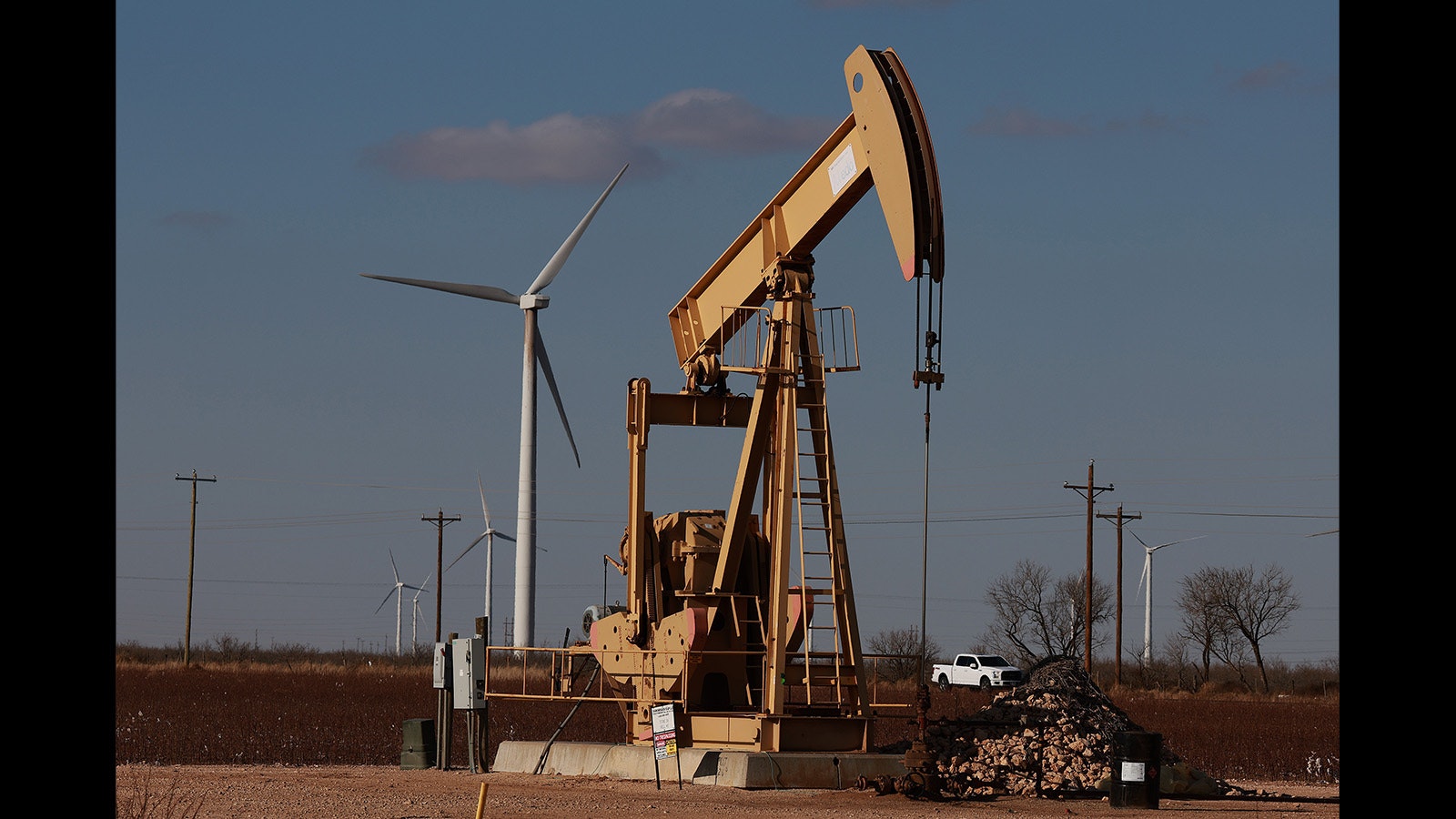Proponents of a future free of fossil fuels got some disappointing news this week.
The 2023 Statistical Review of World Energy — considered the primary source of data on global energy production and consumption — shows that oil, gas and coal continue to be the world’s main source of energy, despite huge increases in renewable energy capacity.
Wind and solar in 2022 saw the largest increase ever recorded in the history of the review, reaching a record 12% of the total share of power generation. Solar was up 25%, and wind grew by 13.5%.
Despite these gains in renewable energy, fossil fuels were the source of 82% of the world’s primary energy consumption, a figure that remains largely unchanged for the past few decades.
Primary energy includes all energy consumed. Electricity is only about 20% of the energy consumed worldwide. Transportation and industry account for the rest.
A Lot Of Intertia
Kevin Kilty, a retired University of Wyoming adjunct professor of engineering, told Cowboy State Daily the report confirms that the world can’t rapidly eliminate the use of fossil fuels.
“An enormous amount of our infrastructure is based around fossil fuels, and you don't change that very fast. There's just a lot of inertia there,” Kilty said.
Kilty also noted that the total amount of fossil fuels consumed has increased. The share of primary energy from fossil fuels consumed remained at 82% of the mix, but as energy demand increased, so did the total amount of oil, gas and coal consumed.
“It contributed about a third of the growth in energy. So in other words, we're using more fossil fuels all the time,” Kilty said.
Wind and solar are limited by their inability to be dispatchable. If the demand for electricity rises on a hot day, for example, there’s no way to just turn up wind turbines and solar panels. They depend on the randomness of the weather.
“That is their biggest problem,” Kilty said.
Some Surprises
Some interesting items of note was that nuclear is the only energy source that declined in production, dropping 4.4% in 2022 over the previous year.
Most of that is from nuclear plants being shut down and few new nuclear power plants coming online. Germany, for example, shut down the last three of its operating nuclear power plants in April.
A large portion of the increase in renewables is in Asia, which accounted for 60% of the world’s total increase.
“I would have expected that North America would add most of it because we offer so many generous subsidies,” Kilty said.
The big question, he said, is how much wind and solar will any grid tolerate. Since they randomly produce electricity, most of which is consumed the moment it's produced, electricity costs rise and grids become unstable the more wind and solar are added to it.
“People are beginning to learn that you can't really tolerate all that much, but nobody has settled on how much is possible,” Kilty said.
Simply The Best
Tim Stewart, president of the U.S. Oil and Gas Association, a petroleum-industry advocacy group, said the reason the percentage of energy coming from fossil fuels refuses to budge is because the properties of fossil fuels make them very difficult to replace.
Fossil fuels are energy dense, he explained, which allows them to be easily transported, stored and used.
“They are simply the best source of reliable energy,” Stewart said.
He said the U.S. economy, along with the rest of the world, will need vast amounts of energy, as well as thousands of products that are derived from petroleum.
“That will never change unless the Marxist green movement succeeds in the de-industrialization of the West,” Stewart said.
While the world continues to increase its use of fossil fuels, the Biden administration has vowed to eliminate the industry in a decade. Stewart said this is a harmful policy that will produce serious consequences for Americans.
“It seems this administration’s energy policy is not to produce more energy but to produce energy poverty,” Stewart said.





